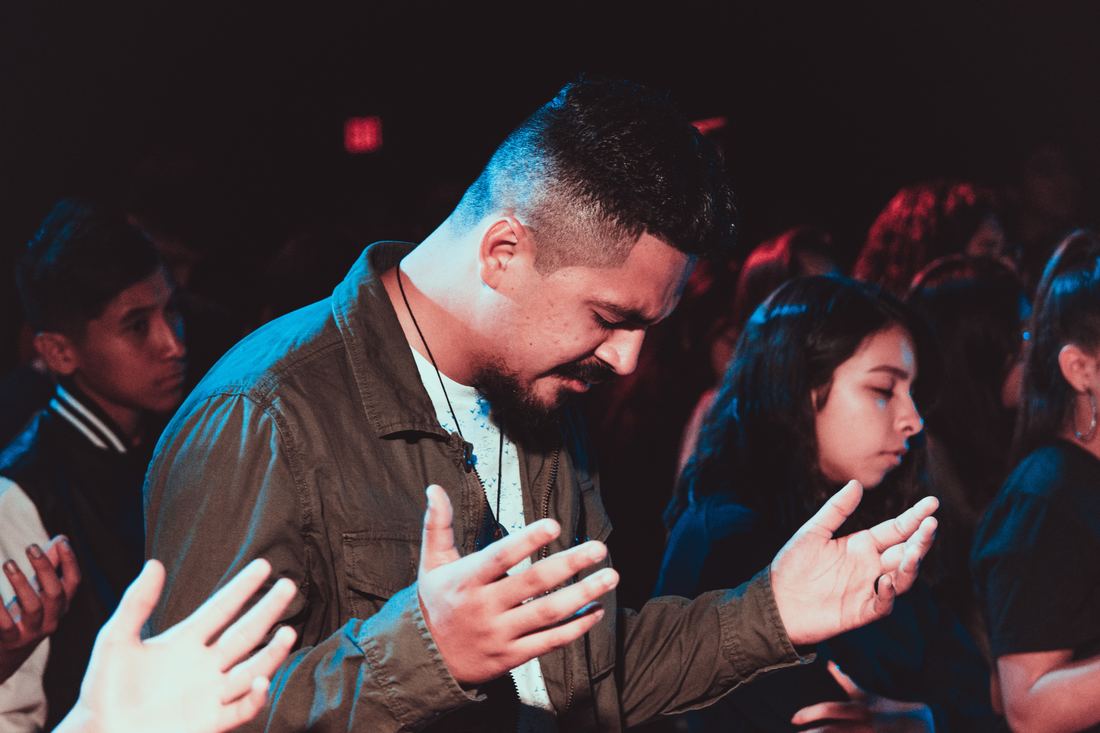|
Lesson 6
Sending Fellow Workers Philippians 2:19-30 * Review and Report on last week’s Walking Points questions and next steps. Thoughts? How did you do? Share any victories and/or struggles you may have had following through with your plan. 1. Read Philippians 2:19-30 twice. Write down any key ideas or phrases that catch your attention. What are the key principles you believe we ought to draw from this text? Why did you choose those principles? 2. What reasons does Paul give for sending Timothy and Epaphroditus? 3. How does Paul describe the character of each of them? What is the value to a Christian community to have men like Timothy and Epaphroditus ministering to them? What is it about them that makes them such good shepherds to God’s people? 4. What does it say about the Apostle Paul, according to verses 19 and 20, that he wanted to send Timothy to the Philippians? What can you deduce about Paul and his relationship with the Philippians from these two verses? 5. Timothy traveled much with the Apostle Paul. Read 1 Corinthians 4:17, 16:10; 1 Thessalonians 3:2. What sorts of ministry has Timothy done for Paul and the churches in the past? What does this tell us about Timothy and his reliability? 6. What might Timothy have learned from the Apostle Paul during his travels with him? What is the value of such an apprenticeship for ministry? Can you think of any modern-day versions of this sort of training? 7. In verse 21, Paul is comparing Timothy’s selfless love for others with those who lack such love. He’s showing that Timothy is truly exemplary in this way. Based on verse 21, whose interest is Timothy most concerned about? Do you know anyone like Timothy? Many people talk a good game about caring for others, but few follow through. Timothy knew he may face some resistance in Philippi, but he was willing to go anyway. Look back at Paul’s words in Philippians 2:1-5 and list those attributes that describe Timothy. 8. In verse 25, Paul describes Epaphroditus in several ways. List them below and explain what Paul may have meant by each description. How was each description vital for Paul’s faith, life, and ministry? 9. Epaphroditus had come from Philippi to Paul with the gift of money as well as to care for Paul’s physical and spiritual needs on the Philippians’ behalf. However, while in Rome, Epaphroditus became very sick. Moreover, his concern for his loved ones back in Philippi added to his heartache. But God healed him. In what way did his healing bless the Apostle Paul (v. 27)? List some of the ways the illness of a loved one impacts you? How do you think Paul was impacted? What do you think the Philippians were going through, knowing that Epaphroditus was so sick? There was no phone service, texting, or anything of the like. How does the “waiting game” affect you while you wait to hear important news about a loved one? 10. What did Paul want to accomplish by sending Epaphroditus back to the Philippians? Why? Walking Points 11. Even though the Apostle Paul wrote such verses as Romans 8:28 and surely trusted in the sovereignty and goodness of God, he still grieved over the illness of his friend, especially since Epaphroditus was so close to death. What does that teach us about the place of grieving in the life of a Christian? Have you ever met a Christian who believed such grief revealed a lack of faith? Based on this lesson’s text, how would you attempt to guide them to think differently about such things? 12. Paul encouraged the Philippians to receive Epaphroditus in the Lord, with joy, and to honor him for the work of Christ he performed in his service to Paul. What might that look like? Who do you know that needs to be honored in such a way? What is it about that person that made you think of them? What will you do this week to show such joyful honor to them? 13. A brother, fellow worker, and fellow soldier are impressive accolades. These words show a depth of intimacy, support, care, and concern that Paul and Epaphroditus had for one another. Look up these verses: John 15:13-14; Proverbs 18:24; Ecclesiastes 4:9-10. What do these verses teach us about the value of such companionship? Do you have anyone in your life who is “that person” for you? Are you “that person” for anyone else? Share a little about this relationship and how it resembles what Paul (and these other texts) are talking about? Why are these relationships especially important for our faith and ministries?
0 Comments
Lesson 5
Lights in the World Philippians 2:12-18 * Review and Report on last week’s Walking Points questions and next steps. Thoughts? How did you do? Share any victories and/or struggles you may have had following through with your plan. 1. Read Philippians 2:12-18 twice. Write down any key ideas or phrases that catch your attention. What are the key principles you believe we ought to draw from this text? Why did you choose those principles? 2. In Philippians 2:5-11, Paul presented a beautiful and majestic picture of Christ and his work. Now he tells the Philippians that because of who Christ is and what he has done, their lives, “therefore,” should reflect Christ’s life being lived in and through them. List the ways Paul says the Philippians should live, according to verses 12-18. 3. Read Ephesians 2:8-10; Romans 3:21-26; Galatians 2:15-16. In these texts Paul makes it clear that we are justified (i.e., declared righteous or saved) by grace through faith in Jesus Christ, and not by works. In Philippians 2:12, Paul calls the Philippians to “work out” their own salvation. What do you think he means? What do you think he does not mean? Explain your reasoning. What do you think Paul means by adding the phrase, “fear and trembling?” 4. Read Galatians 2:20 and Colossians 1:29. According to these verses and Philippians 2:13, how will the Philippians be able to work out their salvation? Describe why this good news is a source of hope and confidence for Christians who desire to faithfully live for God. 5. Paul says we should do all things without grumbling or disputing (or, arguing). What do the following words mean? · Grumbling – · Disputing (or, arguing) – Read 1 Corinthians 6:1-11 and 10:1-12. Why are grumbling and disputing, or arguing, so bad for individual Christians as well as Christian communities to practice? Compare and contrast what you find in these texts with what Paul describes in Philippians 2:1-11. How are they different? 6. According to verses 15-17, why does Paul want the Philippians to do all things without grumbling and arguing? 7. Read Matthew 5:43-48 and Romans 12:9-21. Based on these texts, what do you think Paul means by exhorting the Philippians to be blameless and pure in the midst of a crooked and twisted generation? Read Deuteronomy 32:5. How did Moses describe Israel when they went astray? Paul surely had those words of Moses in mind when he wrote about his own crooked and twisted (or depraved) generation. Describe two or three ways in which ours is a crooked and depraved generation. What do you think it means to “shine as lights in the world” (v. 15)? See also, Matthew 5:13-16. 8. The phrase in verse 16, “holding fast,” can also be rendered “hold out.” Thus, it can mean either “remaining steadfast” in the word of life, or “offering” it to others. Regardless of which way it is meant, what is the “word of life” that Paul refers to? Read Acts 5:17-21 and 1 John 1:1-3 for help. Paul was looking forward to the “day of Christ” when he might be proud, not of his accomplishments, but in the way God moved in and through the faithfulness of the Philippians. Read 2 Corinthians 5:10; 1 Corinthians 4:1-5; Romans 14:10-12. Based on these texts, what happens at the “day of Christ” and why would Paul want to make a good showing? [We are not saved by our own good works. We are saved by grace alone through faith in Christ alone. And yet, as Paul says in Ephesians 2:10, and earlier in verse 12, our salvation in Christ should bear the fruit of good works. We are saved for good works, not by our good works.] 9. In verses 17 and 18, Paul says he rejoiced in the sacrifice of the Philippians who were in committed fellowship with the Apostle and supported his ministry, financially. In turn, Paul saw himself as the accompanying “drink offering” or “libation” that was customarily poured upon the sacrifices of that day. Read 2 Timothy 4:6-8 and Romans 12:1. What did Paul mean by saying he was being poured out as a “drink offering? Walking Points 10. When do you most often grumble and argue? What is the attitude of your heart when you are grumbling and arguing? Read Philippians 2:1-5. What are opposite attitudes and actions of grumbling and arguing? What are three things you can begin doing today to head off grumbling and arguing before it takes hold of your life? 11. Read John 17:6-19. In his High Priestly prayer for his disciples, Jesus specifically says he has not prayed for God to take his disciples out of the world. Therefore, based on this text and others that come to your mind, what are three practical ways Christians can remain blameless and pure in the midst of our generation without a total withdrawal from the culture? Or, do you think withdrawal from the culture is an option? Explain your answer. 12. Name three ways you are, or can become, a drink offering to God, for the sake of others in your life? Lesson 4
Imitating Christ’s Humility Philippians 2:1-11 1. Read Philippians 2:1-11 twice. Write down any key ideas or phrases that catch your attention. What are the key principles you believe we ought to draw from this text? Why did you choose those principles? 2. What do you think of when you hear the word, “humility?” What would you say are the primary influences of your view of humility? 3. According to the Apostle Paul, how can the Philippians “complete his joy” (verse 2)? What does Paul mean by, “being like-minded, having the same love, being one in spirit and purpose,” in verse 2? What would you say are some necessary conditions to the kind of like-mindedness and unity Paul has in mind? 4. How does Paul’s command in verses 3 and 4 help bring about such unity? What would his words in these two verses look like if they were lived out in your… · Home · Church · Workplace · Community 5. How would you define “humility,” based on verses 1-4? 6. C.S. Lewis said pride is the foundational sin that gives birth to all other sins in a person’s life. How is humility a foundational virtue and in what ways might it bring forth other virtues? 7. In verses 5-11, Paul provides a picture of what humility should look like. What kind of “attitude” or “mind” does he commend? Describe it. 8. What key areas of Christ’s life and ministry did Paul highlight in verses 5-11 that describe the humility we should seek to imitate? 9. Read John 1:1-18; Colossians 1:15-20; Hebrews 1:1-4. What do these texts teach us about who Jesus is? Paul tells us in Philippians 2:6-7 that Jesus “made himself nothing” or “emptied himself?” Does that mean Jesus ceased to be God? Explain your answer. 10. Paul said that Jesus was made in human likeness (v. 7). What did Paul mean by also saying Jesus took the very nature of a “servant” (v. 7)? Based on the Scripture texts in Question 9, that reveal to us the glory and preeminence of Christ, what do Paul’s words about Christ in Philippians 2:7 tell us about the character and mission of Christ? What emotions and feelings about Christ does that truth cause within you? 11. In what ways was the death of Jesus on the cross an act of humility (v. 8)? 12. According to verses 9-11, what name did God give Jesus as an expression of his exaltation? (Hint: it’s not the name, “Jesus.”) 13. In your own words, what does it mean that every knee should bow before Jesus Christ and every tongue confess that he is Lord (v. 11)? What does it mean to call Jesus, “Lord?” 14. Who ultimately received glory from this act of humility and exaltation (v. 11)? Walking Points 15. What is it about human nature that makes living out the humility described by Paul so difficult? In what circumstances do you find it hardest for you to live humbly in you daily life? Why? 16. What are three practical (real) ways you can apply Philippians 2:1-4 in your life, starting today? 17. It’s unlikely you will have to die for another person, and certain you will not (nor can you) die for another person’s sins. Therefore, what are three ordinary ways you can imitate the humility of Jesus in your life? (Read Luke 14:1, 7-11) 18. How does remembering what Jesus has done for you (Philippians 2:6-8) impact your thoughts about the importance of humility? 19. In addition to the texts in Question 9, read Matthew 28:16-20 and Ephesians 1:15-23 Considering these verses, how would you describe or define the Lordship of Jesus Christ to a friend? 20. Based on the verses in the question above, do you believe there is any area in all creation that should not be under the authority of Christ’s Lordship? Even in the lives of people who reject him? Explain. 21. What would your life look like if you submitted to Jesus Christ as Lord in every sphere of your life? Where would the inner conflicts arise? Where would the surrounding culture resist you? In what ways would it bless you and others? 22. Let’s narrow our focus and ask the hard question: Is there any area of your life which you have not submitted to Jesus Christ as Lord? What area(s) have you been keeping from him? Why? What will you do today to submit those areas to Christ? Don’t try this on your own. Meet with two or three other Christians for help, prayer, encouragement, and accountability. Prayer God and Father of our Lord, Jesus Christ, we give you our praise and thanks for the great work of Christ upon the Cross for our sin, rebellion, and brokenness. Not because he had to, not because of anything good in us, but because of his goodness and grace did he take on our flesh, humble himself, and become an obedient servant. He took the pain, humiliation, abandonment, and death that was our due. What a gracious Savior he is! Enlarge our hearts and minds to desire to know him better and love him more than we do. And let this knowledge of him and love for him humble us. We pray, O Lord, that our knees will bow before him as we serve others in our world. Fill us with his Spirit, for left to ourselves we cannot and will not imitate his humility. Help us die to ourselves and live the risen life with him, that we might faithfully represent him before a watching world, for your glory and the good of others. In Christ’s name, we pray. Amen. (based on Philippians 2:1-11) |




 RSS Feed
RSS Feed
